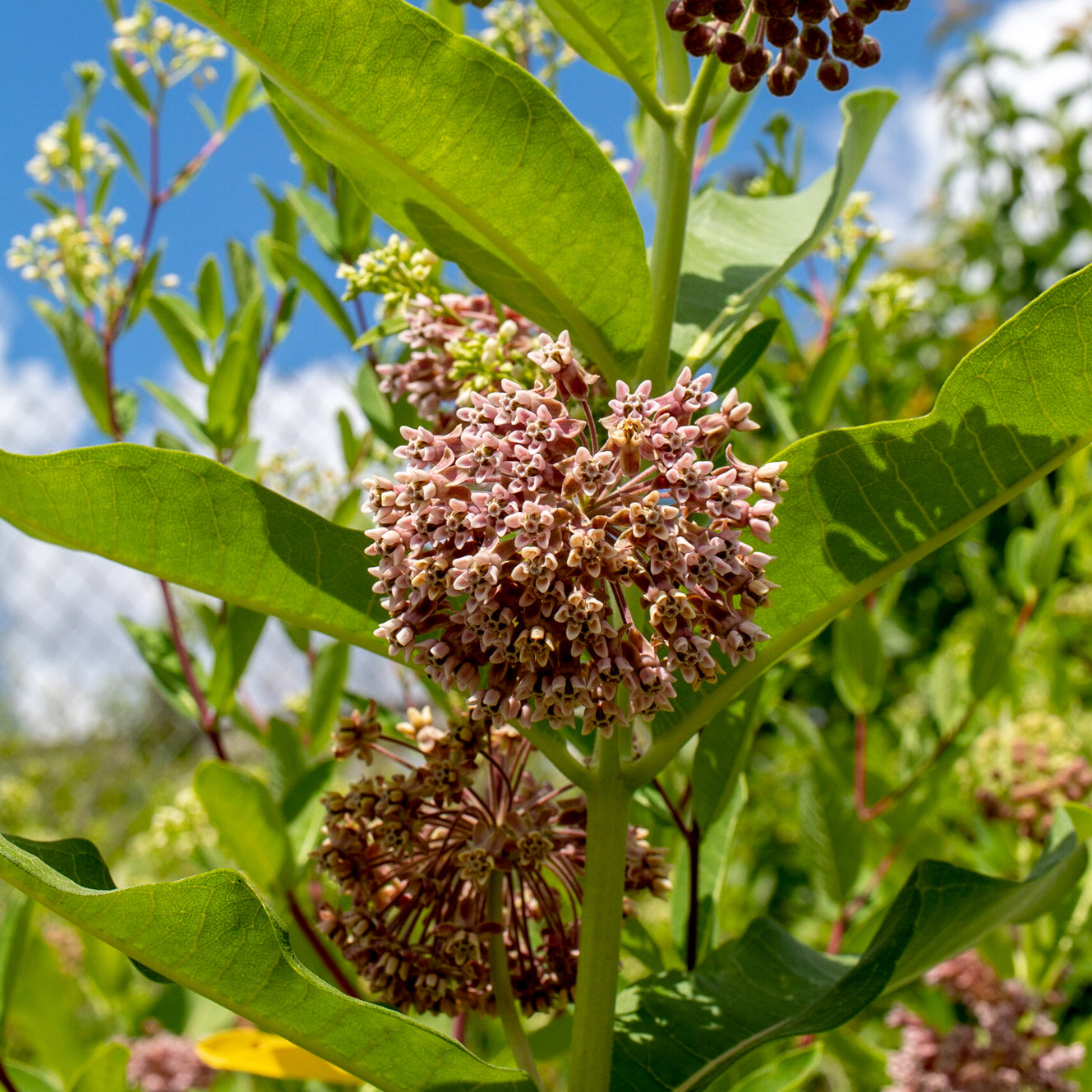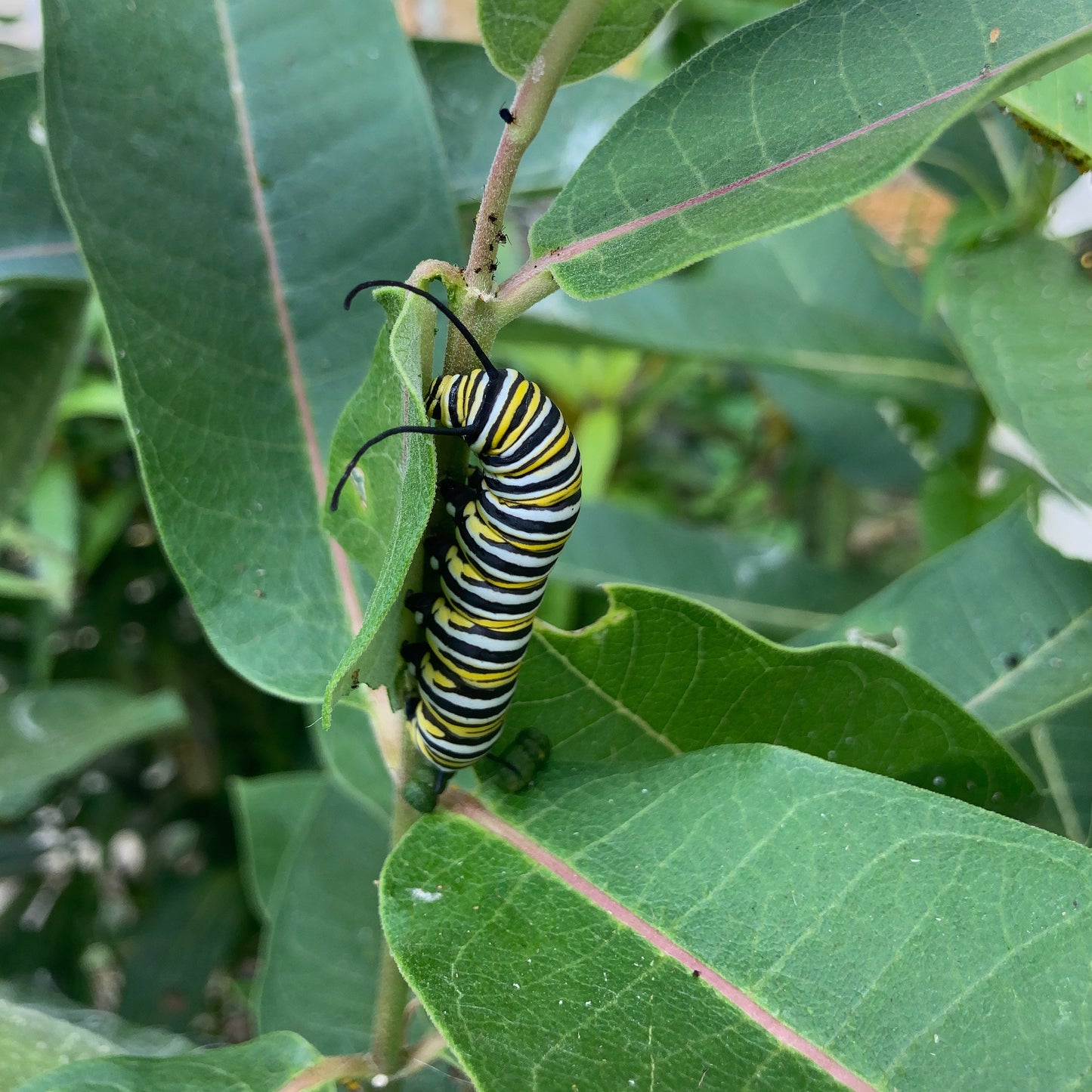Common milkweed
Asclepias syriaca
Asclepias syriaca
Couldn't load pickup availability
Sun/shade: Full sun to part shade
Soil moisture: Dry to medium
Height: 3-5'
Flowering period: July
Deer resistance: High
With orbs of pink flowers that give way to strange, spiny seed pods, common milkweed has an aura of otherworldly fascination. Extraordinary appearances aside, few plants are more connected to local ecosystems than is this one, feeding over 450 species of insects. The nectar produced by common milkweed’s rose-scented flowers nourishes ants, flies, beetles, bees, wasps, and butterflies. The beloved monarch butterfly visits common milkweed for nectar, and as a caterpillar, feeds on the plant’s leaves.
Common milkweed is quite competitive, spreading by long underground stems to send up new plants. This habit makes common milkweed very difficult to contain, and the plant will easily overtake small garden beds. Due to its spreading nature, common milkweed is best utilized in more spacious prairie-style gardens. A frequent volunteer in urban lots and along roadsides, common milkweed often grows in association with other vigorous plants like common yarrow, grass-leaved goldenrod, late boneset, and New England aster.
Common milkweed is adaptable to partial shade as well as full sun, and it may spread less aggressively in the former. The plant is quite drought tolerant and can be a good choice for dry growing situations. Blooming during the month of June, common milkweed is a nice option for early season pink color.
Photos by Ashley Keesling.



